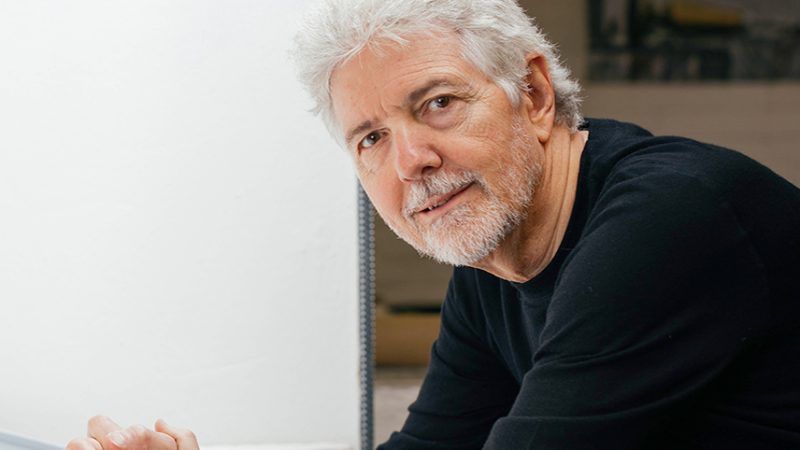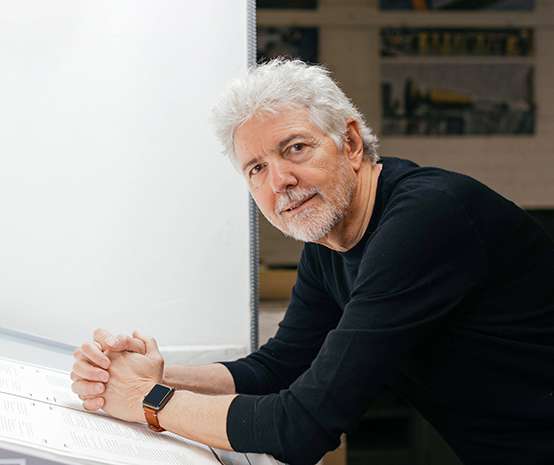Louis Rossetto Is Wired for Optimism


While still an undergraduate at Columbia, future Wired magazine co-founder Louis Rossetto co-authored a 1971 New York Times Magazine cover story on "The New Right Credo." In his view, liberalism, conservatism, and "leftist radicalism" had all proven to be bankrupt political philosophies, leaving their "refugees" to coalesce under a new banner: libertarianism. More recently, he is author of Change Is Good: A Story of the Heroic Era of the Internet, a crowdfunded novel he published with legendary designer Erik Spiekermann. Reason's Nick Gillespie talked with Rossetto about his new book and how his political predictions hold up in the era of Donald Trump.
Q: What's so interesting about Change Is Good?
A: I suppose for you, the most interesting thing about the book is the focus on that time. The book is set in the 1990s, this pivotal moment in world history. It was a period of unbelievable optimism.
Q: The Cold War is over. The internet is taking off.
A: There's a sense that the future is utterly malleable. For the first time in a long time, there's this open running room. Any crazy idea is no longer bound by normal restrictions. I mean, companies that had zero income had billion-dollar valuations. You had Bill Clinton saying "the era of big government is over." There were all sorts of things happening in society that were pointing toward a millennial future that was going to be almost utopian. The Gen Xers were adventurers and revolutionaries, consciously looking to travel to a new land and bring back fresh kill for the human race.
Q: People felt like they could do heroic things.
A: It's heroic when you do it in the face of danger, which you also had at the time. Any company could go under at any moment. What was the digital revolution became the dot-com bubble. What was utopian became greed. I'm trying to examine that particular tipping point, between the moment people had fire in their eyes and wanted to change the world and [the moment] they ended up being seduced into pursuing the pure joy of making a lot of money.
Q: How would you characterize the internet now?
A: I think the internet's just become part of our life. It's gone from occult to the culture. You have to look to other places to see where the edge is today.
Q: Your book is a revolution in printing. Talk about that.
A: Books have become devalued as they've migrated into the digital domain. The inks are not great. The paper's not great. The binding's not great. Nothing about it is special. We said, "Why don't we make the best experience we can in the 21st century for reading itself?" That required Erik to begin an exploration of printing itself. Letterpress is actually an image pressed into a piece of paper. It's something that got lost in [the age of] mass marketing. What Erik has done is reinvented a way of producing plates for letterpress, which enable you to use all the digital tools, but apply them to this classic technology.
Q: You've surprised people by enjoying Trump's rise.
A: For most of my life, my tendency has been to try to diminish the power of the state. Part of that is literal power, and part of it is the power that's in your head. The president has become this figure of immense authority that you're obliged to respect, who has the ability to project that power all over the planet.
Trump is a refreshing reminder that the guy in the White House is another human being. The power of the state is way too exalted. Bringing that power back to human scale is an important part of what needs to be done to correct the insanity that's been going on, where you have these large institutions that control all aspects of our lives. Leaching respect out of the state is kind of a good thing.
This interview has been condensed and edited for style and clarity. For a video version, visit reason.com
This article originally appeared in print under the headline "Louis Rossetto Is Wired for Optimism."


Show Comments (10)